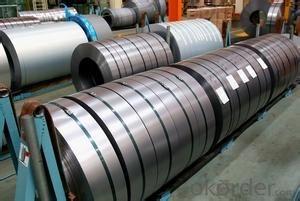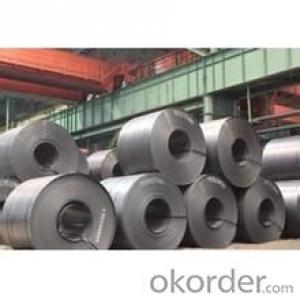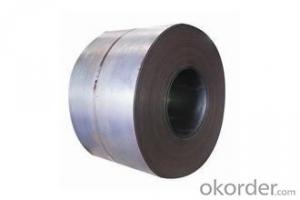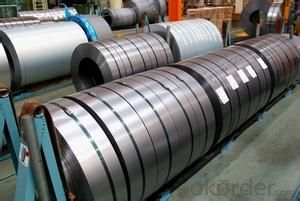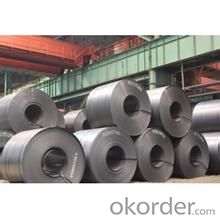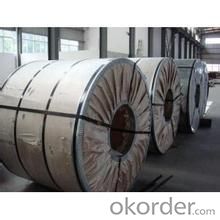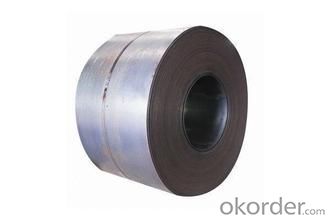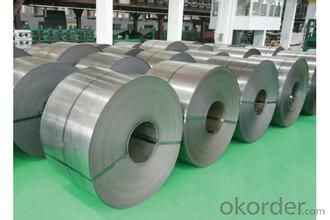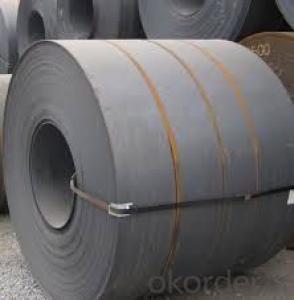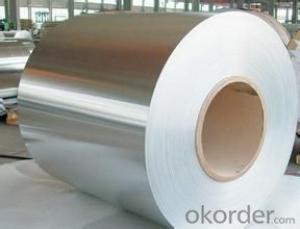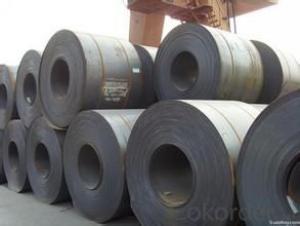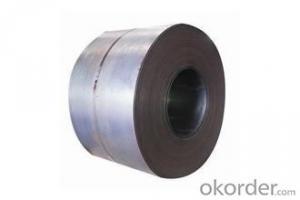Stainless Steel Coil/Sheet/Strip/Sheet -SAE J403
- Loading Port:
- Tianjin
- Payment Terms:
- TT OR LC
- Min Order Qty:
- 30 m.t.
- Supply Capability:
- 500000 m.t./month
OKorder Service Pledge
OKorder Financial Service
You Might Also Like
Product Description:
Product: | Hot Rolled Steel Coils/Sheets |
Material: | Q195,Q235,A36,SS400,S235JR,Q345,ST37-2, CCSB etc |
Standard : | JIS G3002 GB/T251B |
Technique: | hot rolled |
Thickness | 1.2mm to 200mm |
Tolerance of thickness: | :+/-0.03mm |
Width: | 750mm-2000mm |
Tolerance of width: | :+/-5.00mm (aiming to +/-2.00mm) |
Normal width: | 914mm, 1000mm, 1200mm, 1219mm, 1250mm,1500mm |
Length: | According to requirement |
Coil ID: | 508mm-610mm |
Coil Weight: | 10-25 Metric Tons |
Surface: | Black, Chromate, fingerprint resistant treatment, slight oiled or non-oiled, dry |
Port of Loading: | Tianjin/Shanghai port |
Packaging Details: | Standard export packing or according to the clients required |
Delivery Time | Within 30 days after received 30% deposit or workable L/C |
Payment Terms: | L/C,T/T |
We can ensure that stable quality standards are maintained, strictly meeting both market requirements and customers’ expectations. Our products enjoy an excellent reputation and have been exported to Europe, South-America, the Middle-East, Southeast-Asia, Africa and Russia etc.. We sincerely hope to establish good and long-term business relationship with your esteemed company.
- Q: if steel is heated from room temperature (20c) to (500c) what would be the change in density?coefficient for linear expansion of steel 12x10^-6 k density of steel 7800 kg
- First you have to convert the coefficient of linear expansion to a coefficient of volumetric expansion. Multiply the coefficient of linear expansion by 3: Coefficient of expansion of steel,β:12E-6/°K x 3 = 36E-6/°K Difference in temperature: 480°K ΔV = VoβΔT ΔV = Vo x (0.000036) x 480 ΔV = 1m? x 0.017 ΔV = 0.017m? Originally, the steel was at 7800 kg/m? Now, the steel was at 7800 kg/ 1.017m?, or 7670 kg/m? Change in density = 7670 - 7800 = -130kg/m?
- Q: What is the difference between galvanized and galvalume steel coils?
- Galvanized steel coils are coated with a layer of zinc, which provides protection against corrosion. On the other hand, galvalume steel coils are coated with a combination of zinc and aluminum, offering enhanced corrosion resistance and better heat reflectivity. Additionally, galvalume steel coils have a longer lifespan and superior performance in harsh environments compared to galvanized steel coils.
- Q: What are the different coil slitting line configurations used for steel coils?
- Manufacturers have a range of options when it comes to coil slitting line configurations for steel coils. Each configuration has its own advantages and applications. These configurations are as follows: 1. Simplex Slitting Line: This configuration is suitable for lower production volumes and thinner gauge materials. It utilizes a single slitter head to cut the coil into smaller widths. 2. Loop Slitting Line: Ideal for high-volume production and thicker gauge materials, this configuration features a loop pit that allows for continuous processing without stopping the line. 3. Double Loop Slitting Line: Similar to the loop slitting line, this configuration includes two loop pits, enhancing the line's efficiency and productivity. It is commonly used for processing wider width and thicker gauge materials. 4. Tension Stand Slitting Line: With a tension stand that applies constant tension during the slitting process, this configuration ensures consistent slit widths. It is often used for high-precision slitting applications. 5. Rotary Shear Slitting Line: This configuration utilizes a rotary shear to cut the steel coil into smaller widths. It is suitable for both thin and thick gauges and offers high-speed and accurate cutting. 6. Scrap Winder Slitting Line: This configuration incorporates a scrap winder to collect excess material trimmed during the slitting process. It helps improve efficiency and reduces waste. 7. Combination Slitting Line: Combining multiple slitting processes into a single line, this configuration allows for different slitting methods and widths to be achieved within one setup. It provides flexibility and versatility in processing various steel coil sizes and materials. Manufacturers can choose from these different coil slitting line configurations based on their specific production requirements and the properties of the steel coils they are processing.
- Q: What is steel made of? What are the elements other than iron?
- mainly steel made of Iron and carbon and treated in a proper process to become hard you can add some kind of other elements to get your desired proparty as Chromium,, nickle.. Cupper,, Berelyium,, Vanadium
- Q: How are steel coils inspected for surface finish variations?
- Steel coils are inspected for surface finish variations using visual inspection techniques, such as the use of specialized lighting and magnification to identify any imperfections or inconsistencies on the surface. Additionally, non-destructive testing methods, such as laser scanning or magnetic particle inspection, may be employed to detect any surface defects that are not visible to the naked eye.
- Q: What are the different methods of stretch leveling steel coils?
- There exists a variety of methods for stretch leveling steel coils, each possessing their own unique advantages and applications. 1. Roller Leveling: This method entails passing the steel coil through a sequence of rollers that apply pressure to stretch and flatten the material. It is a widely utilized technique for leveling steel coils and grants excellent control over the leveling process. Roller leveling proves suitable for thin and medium gauge steel coils. 2. Tension Leveling: In this approach, high tension forces are applied to the steel coil via a set of bridle rolls. The tension aids in elongating and flattening the material, resulting in a level and stress-free coil. Tension leveling proves particularly effective for thicker and harder steel coils. 3. Laser Leveling: Laser technology is harnessed in this method to assess and rectify any imperfections present in the steel coil. A laser scanner diligently scans the surface of the coil and detects variations, which are subsequently adjusted by a laser beam. Laser leveling provides exceptional precision and is suitable for leveling delicate and high-value steel coils. 4. Stretcher Leveling: This method involves exceeding the yield point of the steel coil, leading to permanent deformation and the elimination of residual stresses. Stretcher leveling is commonly employed for heavy gauge coils and is capable of achieving substantial improvements in flatness. 5. Tensionless Leveling: As the name implies, tensionless leveling is executed without the application of tension to the steel coil. Instead, hydraulic or pneumatic pressure is employed to stretch and flatten the material. This method is ideal for delicate or sensitive steel coils that may be susceptible to damage under high tension forces. Each method of stretch leveling steel coils possesses its own set of advantages, such as control, precision, or suitability for specific types of steel coils. The selection of the appropriate method relies on factors such as the thickness, hardness, and quality requirements of the steel coil, as well as the desired flatness and surface finish.
- Q: i currently have just steel guitar strings, not a fan they need replacing and i was wondering whats the difference between steel and bronze strings and or nickle strings?
- This Site Might Help You. RE: steel vs bronze acoustic guitar strings? i currently have just steel guitar strings, not a fan they need replacing and i was wondering whats the difference between steel and bronze strings and or nickle strings?
- Q: What are the different methods of cutting steel coils into sheets?
- There are several methods of cutting steel coils into sheets, including shearing, slitting, and laser cutting. Shearing involves a straight blade that cuts through the coil to create individual sheets. Slitting uses circular knives to cut the coil into narrower strips, which are then further processed into sheets. Laser cutting uses a high-powered laser beam to precisely cut the coil into sheets, providing more flexibility in terms of shapes and sizes.
- Q: Can steel coils be coated with fire-resistant materials?
- Yes, steel coils can be coated with fire-resistant materials. This coating can provide an extra layer of protection against fire hazards, reducing the risk of ignition and spread.
- Q: how do i quinch steel? i heard instead of water oil will actually make it harder... wat ways are best for wat steels? and how do i tell wat kind of steel i have?... i will be doin this with my poket knife..
- boy what a though question ! let me explain. when you rapidly cool a steel from high temperatures(depending on steel type) with water or oil or other means , it is called quenching. it depends on the steel type to say if it is better to quench it with oil or water but basically in water you will have a harder steel rather than oil. for some steels if you do this you will ruin it's properties ! you can't totally tell what kind of steel do you have until you get it analyzed with Quantometer analyzer with a pocket knife it is more like an estimation and it can't be trust able generally if you can scratch the steel with your knife it means it is not a hard steel and it might not be expensive. I hope that helps but for more information i need to know more !
Send your message to us
Stainless Steel Coil/Sheet/Strip/Sheet -SAE J403
- Loading Port:
- Tianjin
- Payment Terms:
- TT OR LC
- Min Order Qty:
- 30 m.t.
- Supply Capability:
- 500000 m.t./month
OKorder Service Pledge
OKorder Financial Service
Similar products
Hot products
Hot Searches
Related keywords
